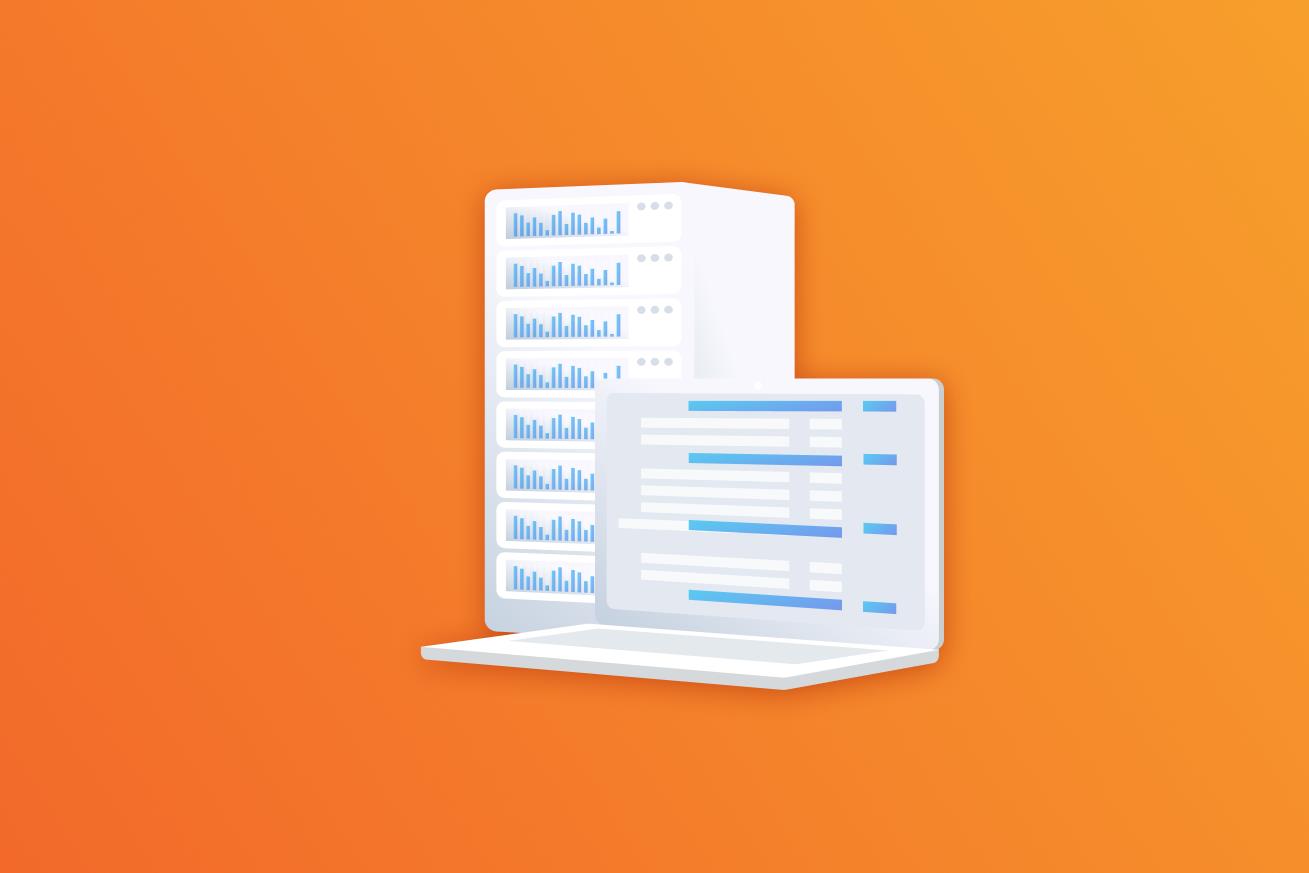More than 60% of the European market and 50% of the American market use by SAP products. SAP partners with such giants as adidas, Google, Coca-Cola, and Volkswagen, and many more. What’s the secret of the company’s success? What is it like to be an expert in SAP? And what should you do to become one? We talked to EPAM SAP specialists to answer these and many other SAP-related questions.
What is SAP?
SAP (System Analysis and Program Development) is a German software enterprise. It started as a small private company producing solutions for effective management of business. Soon, it grew to become a large corporation which developed a reference product. According to Forbes, SAP ranks among three leading providers of software solutions, together with Microsoft and Oracle.
Why do clients prefer SAP products?
Continuous development and advanced technologies.
Andrei Velichko, SAP Chief Functional Consultant:
SAP never stops innovating and keeps developing new technologies. It increases its market share with business applications and analytical solutions. SAP can meet lots of client requirements with just one product. Once you get an SAP solution, you can automate your whole business.
Quality, capabilities, convenience.
Natallia Dubovik, SAP Lead Functional Consultant:
Once, I thought that the success of SAP products was based on the company’s country of origin and the German scrupulousness. However, with time, I understood that the national culture was not the only case. The experience and methodologies mattered too. SAP releases the well-thought products that are perfectly integrated with each other. Solution implementation is in the hands of professionals. The SAP products are very stable. They enable building complex, multifunctional systems.
Wide range of products.
Dmitry Surkov, SAP Software Engineering Team Leader:
SAP is a major player in the market of enterprise solutions. The company creates products for different industries: finance, sales, material management, logistics. It also has a variety of industry-specific solutions for energy, telecommunication, military, and healthcare companies. The range of SAP products is impressive.
Reputation and confidence.
Konstantin Semyonov, SAP Chief Functional Consultant:
SAP is a reputation. If your company runs SAP, your business processes are well established, and you can be trusted. Both you and your clients will have no doubt about the quality and productivity of SAP products.
Each company has its needs. For each need, there’s an SAP product.
SAP products
SAP NetWeaver for the integration platform, SAP BI (Business Intelligence) for business applications, SAP HANA for the database, SAP S/4 HANA for the next-generation ERP system, SAP Cloud Platform for the cloud platform. The majority of the company’s products is written in ABAP/4, the internal programming language of SAP.
Project roles
Every SAP product can be tailored to the specific needs of a client. SAP consultants are responsible for the solution configuration.
What is an SAP consultant?
For the most part, a standard SAP system is already written and has its own predefined business chains for different areas. The responsibilities of an SAP consultant include choosing a certain area and studying it inside-out. Thus, the consultant will be familiar with full functionality of the system and will know how to present it to a client.
Andrei Velichko, SAP Chief Functional Consultant:
You need a clear understanding of the business of a client and its role in the industry. How do the processes work? Are there any differences? What do they depend on? How’s the system configured in other companies?
You can start with one specific process such as material management. In this case, an SAP consultant should understand the procurement process, its many types, and the specifics of the procurement in a certain industry.
Once you’re done with the basic principles, it’s time to get familiar with work organization on an SAP project. Every project uses its own methodologies and undergoes specific stages. SAP consultants have their unique responsibilities at each stage.
Andrei Velichko, SAP Chief Functional Consultant:
It’s important to know that a project starts much prior to signing a contract. The first step is getting to know the business and goals of a client. A consultant should explain SAP to the client, present the benefits of implementing SAP products, and convince the client that SAP products are practical and useful.
Then goes discovery, technical design, product configuration and elaboration, user training, migration of information from a source system to an SAP system.
Andrei Velichko, SAP Chief Functional Consultant:
At each stage, a consultant communicates with a client to clarify some details and propose more fitting solutions.
What personal traits should an SAP consultant have?
An SAP consultant should be sociable, presentable, and stress-proof. They should not be afraid of communicating with people of a different seniority level, be it a warehouse man, a security, a CEO, or the owner of a major company.
What background is the most preferable one for an SAP consultant?
Andrei Velichko, SAP Chief Functional Consultant:
Whether you come from business or IT, you can become an SAP consultant. The position implies the skills of both areas. Eventually, it all comes down to a person’s determination. A programmer who enjoys coding but avoids communicating can’t be an SAP consultant. And vice versa. A business analyst who likes communicating with clients but can’t stand programming will never get the position.
If product configuration doesn’t lead to a desirable outcome, a development team can step in and write the required functionality in ABAP/4, Java, or JavaScript.
What is an SAP developer?
The ABAP/4 programming language is designed specifically for the ecosystem of SAP products. The language was created long ago. However, it continues to actively develop. New structures and frameworks keep appearing. For almost forty years of its existence, ABAP/4 has embraced many different programming paradigms, including procedural, oriented, and object-oriented ones. The language syntax may appear archaic and remind of COBOL. However, the source code is easy to read and understand.
Dmitry Surkov, SAP Software Engineering Team Leader:
It’s important to know that ABAP/4 is not a universal language as Java or C#. It can be used only in the SAP environment. Usually, SAP development is not creating logic from scratch, but extending an existing functionality. This means adding it with the options that a client needs.
To develop these extensions effectively, an SAP developer should have technical skills and knowledge of a specific business domain, understand the capabilities of SAP solutions in this domain, and know how to extend the solution. Thus, they can solve the problem of a client.
Dmitry Surkov, SAP Software Engineering Team Leader:
An SAP developer is somewhere in between a programmer and an analyst. They should not only code but also speak the same language that business does.
Previously, an SAP developer used to be a full-stack specialist, responsible for writing both back-end and front-end parts. In recent years, the responsibilities have been separated between different specialists. Back-end developers still write in ABAP/4, while front-end developers write in JavaScript, HTML, and other frameworks.
What personal traits should an SAP developer have?
An SAP developer should be sociable and presentable. They should have analytical skills, think quickly, and rely on logic. Knowledge of foreign languages and teamwork skills are must.
What background is the most preferable one for an SAP developer?
Dmitry Surkov, SAP Software Engineering Team Leader:
Ideally, it’s a degree in engineering or engineering economics. These days, few people code for one specific area. Usually, a developer builds a solution together with a consultant. To do this, you should know business processes. Knowledge of several programming languages, database basics, and SQL queries is advantageous.
SAP BI consultants build reporting. They gather work data to analyze them and create a system.
What is a BI consultant?
SAP components function as a decision support system. But decision making is still up to the people responsible. A BI specialist should migrate information from decision support systems in the most optimal form. They present the results and make sure that a client not just accepts the solution but asks for a new one.
Natallia Dubovik, SAP Lead Functional Consultant:
The position was born out of extreme laziness of the people. A BI specialist is a relevant and useful addition to a team. An experienced BI specialist is also a profitable one. Our solutions are something beautiful, smart, handy, intuitive, easily configured and implemented. And of course, they are affordable. It’s not just creating a perfect solution but convincing a client that our offering is what they need.
Each client has its own vision of what they need and what could help them. Sometimes, these are not the same thing.
Natallia Dubovik, SAP Lead Functional Consultant:
We meet client requirements using the technological capabilities that we have. Very often, the capabilities do not match the requirements. People want more than they could get. That makes us compromise and be creative. To succeed, we should know all technical aspects and capabilities of SAP products. The more SAP components you know, the easier it is for you to build solutions and meet client requirements.
You should constantly study the business of a client to speak the same language with them. Communicating with the client while being unaware of their business is impossible.
Natallia Dubovik, SAP Lead Functional Consultant:
People are so into their professions, that they tend to use slang in conversation. Throughout the first year as a BI consultant, I used to call the client quite often. So, after two or three meetings dedicated to entries over the recent financial period and other accounting stuff, I enrolled on a course in accounting. Before that, I had had no idea what the client had been talking about and how to interview him.
Aside from industry and technical peculiarities, it’s important to know the unique nature of each specific case.
Natallia Dubovik, SAP Lead Functional Consultant:
It’s the area of no preconfigured solutions. Even if clients run the same business, their requirements will differ. As there are no identical snowflakes, there are no identical BI solutions. The main idea and technologies can be the same, but the implementation process is always unique. You should be ready to know that standard, template-based solutions do not exist in BI.
When working, it’s also important to respect the specifics of one’s visual perception. Clients has various options such as Excel tables, graphs, static data, or interactive reports.
Natallia Dubovik, SAP Lead Functional Consultant:
Usually, a BI specialist is confused with a business analyst (BA). They do sound similar. And in my opinion, a good BI specialist eventually becomes a business analyst. A BI specialist can’t work effectively if they don’t analyze the current situation and know nothing about the requirements of a client. A BI specialist should know what the client can get and what extras they may want.
From a technical point of view, a BI specialist works with the components both as a developer and a consultant. Over the course of solution development, they work as testers, designers, mentors, and psychologists. It makes for an impressive skill set:
- Core programming skills. You should know how to enhance and extend existing solutions
- Testing skills. You should make sure that clients get quality solutions
- Visual design skills. You should present a visually perfected solution. If product design falls short, a client won’t get any information, no matter how well-written and logical it is
- Psychology skills. You should be a sort of psychologist to work in a team and serve as a mediator between a client and developers
What personal traits should a BI consultant have?
A BI consultant should be transparent, thoughtful, curious, self-sufficient, and empathetic. A normal programmer won’t succeed in this field. They can’t fully understand a client, read between the lines, and fill info gaps. The person should be creative too. Usually, a team doesn’t have an outlined technical specification. You should be able to come up with a unique solution tailored to the requirements of the client. You should be eager to learn and accumulate knowledge in the related areas.
What background is the most preferable one for a BI consultant?
Natallia Dubovik, SAP Lead Functional Consultant:
As many other newcomer in IT, I thought that a solid technical background would be perfect. For a couple of years, I was mentoring BI newcomers in a lab. Eventually, a specific background proved to be irrelevant, if a student was ready to listen and learn. It’s true that experience in programming and knowledge of product development make things easier. But a business background will make it too. For example, a cashier has great knowledge of main components of a check. In our terms, they are familiar with central business entities of the operation of a cash center. It’s very important in our job. We implement projects for cash centers quite often. This is where such a specialist would be very useful.
How to become an SAP specialist
Recently, SAP has become a more open company. These days, you can find information about SAP products and technologies in the Internet in public access. There are professional SAP communities and various forums. There, developers and consultants share their experiences and help each other solve challenging problems. SAP conducts regular seminars and courses for those who want to know more about the products and technologies. More recently, it has become possible to get a demo version of an SAP system. You can try to deploy the system, study it, and even code few things.
However, if you want to study SAP on a professional level, our specialists suggest you to choose company-based courses. Thus, you can study theory and get some hands-on experience altogether. Learning certain SAP specialties all by yourself can be very expensive. The companies have all necessary documentation and servers that can really facilitate and accelerate the studying process.
What do we offer?
EPAM-based courses. Every year, EPAM Training Center enrolls students on SAP Development and SAP Consulting courses. EPAM SAP Lab operates on a constant basis. Upon finishing a course, a graduate gets not just a certificate but an EPAM job offer.
What can facilitate your studies? Expert advice
Andrei Velichko:
Be interested and curious. Aside from money, I was mainly driven by my desire to study environment on a deeper and broader scale and explore different perspectives and solutions. Don’t get stuck on one particular area. Take action and keep your eyes open.
Dmitry Surkov:
Be a mindful learner. SAP systems have been evolving for a long period of time. They have accumulated many tools, frameworks, approaches, and knowledge of the related areas. All of these will take time to study. So, don’t rush.
Natallia Dubovik:
If you want to become an SAP BI consultant, you’d better train to be an all-around BI consultant first. SAP is just one of many wrap-ups to work with particular technologies. It’s easy to learn. Though, it requires actual work practice and a trial-and-error approach. Theory alone won’t have any impact on your professional growth.
How can you grow in SAP?
The position of an SAP specialist is where business and development meet. Thus, you have several options:
- You can start as a junior specialist and grow as far as your abilities and ambitions allow. You need to constantly improve your knowledge of SAP systems to be more employable and get salary bonuses for extra skills
- You can focus on solution architecture. Gradually, you can switch from working with systems and system configuration to architecture development and project management. Often, solution architecture includes multiple SAP and non-SAP products. Consequently, you should have vast experience in working with various solutions and solution implementation.
Summary:
An SAP specialist is a unique position that requires a variety of both hard and soft skills. The studying process will take time, money, and an extra effort. Vacancies for SAP positions are less common than others. However, the clients of SAP are major, prestigious, foreign companies that are willing to pay a lot for SAP professionals. If that’s what you need — register for the courses.








